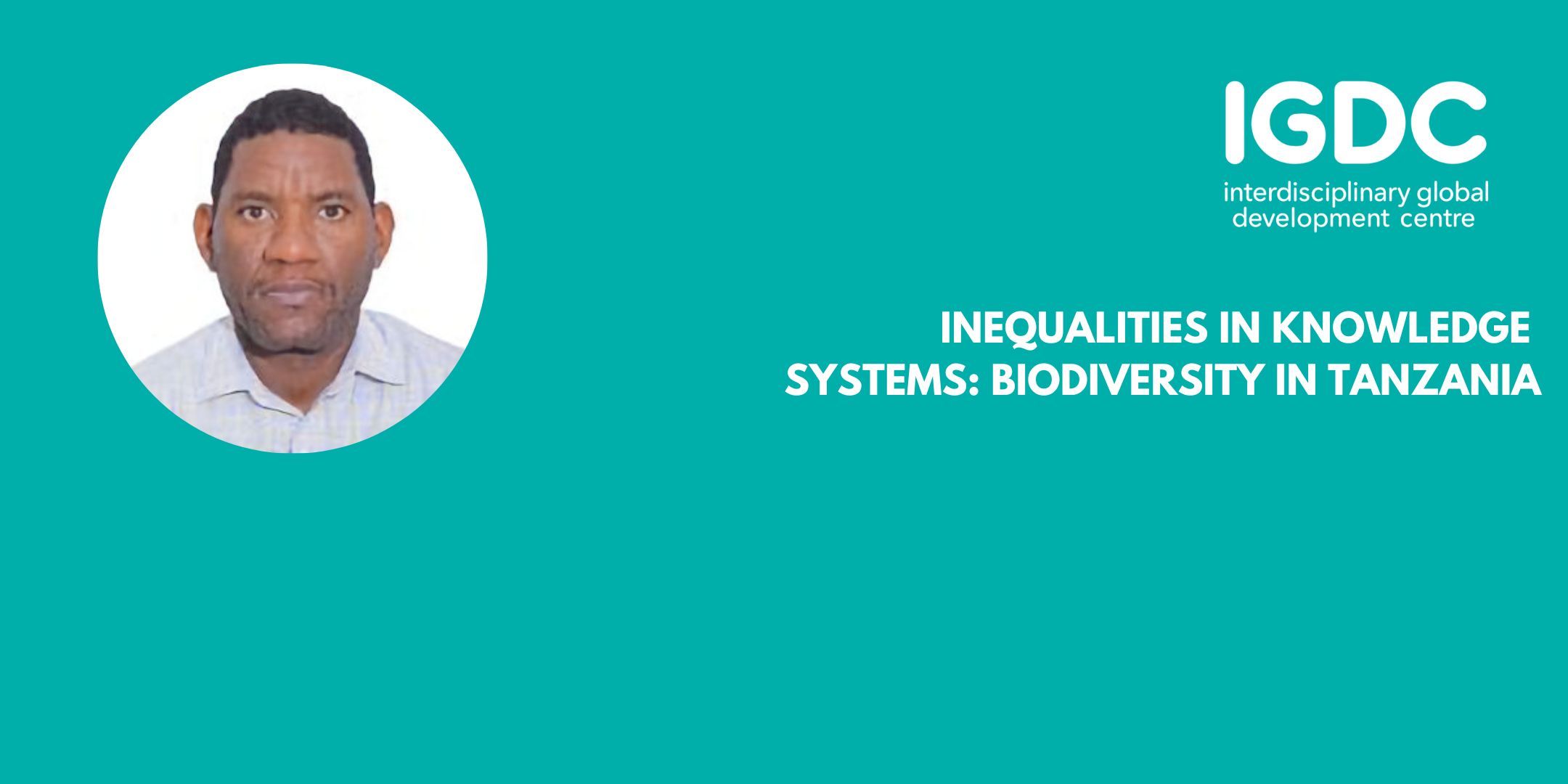
Inequalities in knowledge systems: biodiversity conservation in Tanzania
This event has now finished.
D/N/056, Derwent College, Campus West, University of York (Map)
Event details
We are delighted to be joined by Mathew Bukhi Mabele who will be delivering, along with his co-authors, a seminar on inequalities in the production and dissemination of biodiversity conservation knowledge on Tanzania.
-----------------------------------------------------------------
Tanzania is a popular keyword in biodiversity conservation publications, but, trends in research collaborations, scientific knowledge production and authors’ productivity remain underexplored.
Using the Web of Science database and bibliometric analysis techniques, we fill this gap by examining the trends between 1972 and 2021. The database search produced 1,517 records. We filtered the data using document types and subject categories as criteria. We used bibliometrix package in R software to analyse 1,354 peer-reviewed publications.
Through performance analysis, science mapping and network analysis, journal publications, author and institutional productivity, disciplinary focus, funding agencies and network of authorship and institutional collaborations are identified.
Whereas African Journal of Ecology, PLoS One and Biological Conservation top the scientific production list, Biological Conservation, Conservation Biology and Oryx top the citation list. Major research inequalities are revealed where, European and North American centricity dominates in author productivity (number of papers, total citations and h-index), author collaborations networks and research funding agencies. Out of the top 20 highly cited papers, eleven had no Tanzanian author. The list had only two papers with Tanzanians as first authors. We observed a proliferation of international researchers and decreased productivity of local researchers in the last 30 years.
Organisations from Europe and North America provided much of the research funding in Tanzania. This is possibly one of the first attempts to illustrate empirically how production and dissemination of conservation knowledge are entrenched in unequal structures at a country level. It thus contributes to the burgeoning literature on decolonisation of conservation research and discussions around ethics in North-South research collaborations.
Mathew Bukhi Mabele will be joined online by his co-authors for this session; Wilhelm Kiwango, Enock Makupa, Ng'winamila Kasongi, Happiness Nnko, and Iddi Mwanyoka.
-----------------------------------------------------------------
Mathew Bukhi Mabele Centre of African Studies, University of Cambridge
Mathew is a visiting research fellow at the Centre of African Studies, University of Cambridge, UK and a lecturer and conservation social scientist at the Department of Geography and Environmental Studies at the University of Dodoma, Tanzania. He teaches and researches on the governance (interested in use, access and distribution aspects) of human-environment interactions in tropical ecosystems. He applies political ecology and decolonial theories in his research to understand underlying systemic structures and processes that drive socio-ecological injustices, and explore alternative pathways for just conservation in the ecosystems. He specifically studies knowledge systems, power and politics over framings of concepts such as conservation, Anthropocene, environmental degradation, charcoal, poaching, coexistence, bioeconomy and sustainability at policy level, and resulting consequences for everyday governance and socio-ecological justice in the ecosystems. His works appear in peer-reviewed international journals in geography, sustainability, development, energy, forestry, environment and conservation.
Happiness J. Nnko (PhD) The University of Dodoma - Department of Biology
Happiness is a lecturer in the department of biology at the University of Dodoma. She holds a PhD. in life sciences with a specialisation in “biodiversity and ecosystem management. She has expertise in modelling dynamics of disease vectors and parasites using ecological niche modelling and she has published a number of papers. Nnko has been involved in mapping the climate and land cover/use change impacts on disease vectors’ distributions in wildlife-human interface.
Google Scholar: https://scholar.google.com/citations?hl=en&user=kfPS0Z4AAAAJMr. Ng’winamila Donald Kasongi, Department of Geography, University of Dodoma
Ng’winamila is a social scientist trained in natural resource planning and management both in BSc and MSc levels. His research interests include applied GIS and remote sensing, social networks, Scientometrics, quantitative analysis, Knowledge production and climate change assessment. He has co-authored a number of academic papers in international peer-reviewed journals, including Biological conservation. Currently, he is pursuing a PhD in Geography at the University of Dar es Salaam, Tanzania. The research seeks to investigate the effect of projected climate change on coffee production in Tanzania and is funded by DANIDA through a project called “Paradox of climate smart coffee”.
Twitter: @nkasongi
Dr. Mwanyoka is a Lecturer at the University of Dodoma. He teaches on a range of courses including Natural Resource Assessment and Policy, Disaster Management and Climate change. Mwanyoka has several years of experience undertaking studies on natural resource management, community participation and livelihoods in Tanzania. He is a “hands-on” person having worked for conservation and development organisations such as UNDP, WWF and Care International in Tanzania.
Twitter: @IMwanyoka